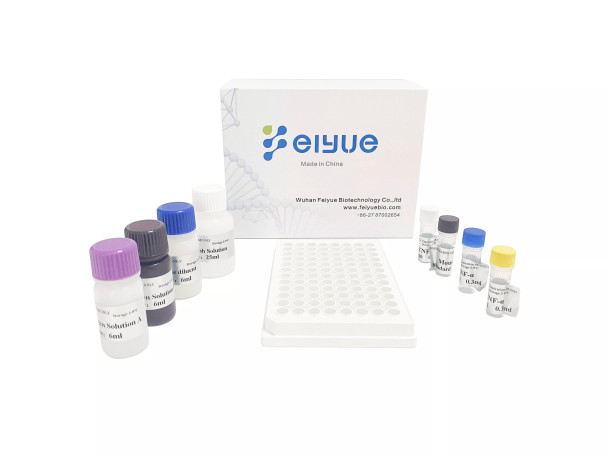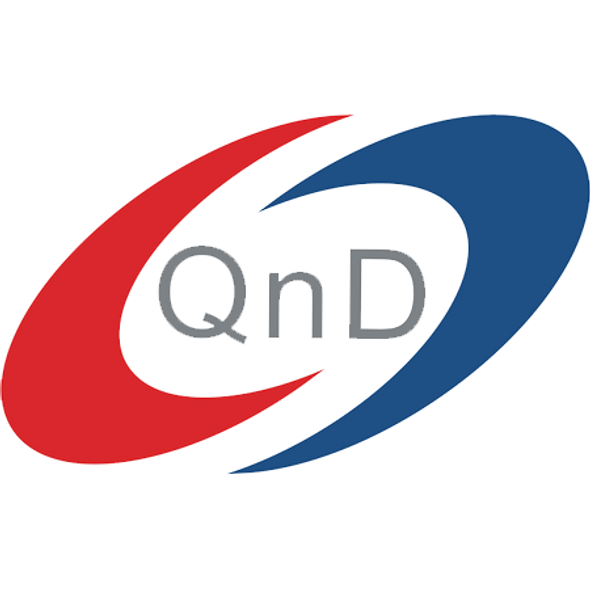Feiyuebio
Human TGF-β1(Transforming Growth Factor Beta 1) ELISA Kit
- SKU:
- FY-EH4337
- Weight:
- 0 KGS
- Shipping:
- Calculated at Checkout
Description
TGF-β1(Transforming Growth Factor Beta 1) Introduction
Transforming growth factor beta 1 or TGF-β1 is a polypeptide member of the transforming growth factor beta superfamily of cytokines. It is a secreted protein that performs many cellular functions, including the control of cell growth, cell proliferation, cell differentiation, and apoptosis. In Humans, TGF-β1 is encoded by the TGFB1 gene.
TGF-β is a multifunctional set of peptides that controls proliferation, differentiation, and other functions in many cell types. TGF-β acts synergistically with transforming growth factor-alpha (TGF-α) in inducing transformation. It also acts as a negative autocrine growth factor. Dysregulation of TGF-β activation and signaling may result in apoptosis. Many cells synthesize TGF-β and almost all of them have specific receptors for this peptide. TGF-β1, TGF-β2, and TGF-β3 all function through the same receptor signaling systems. TGF-β1 was first identified in Human platelets as a protein with a molecular mass of 25 kilodaltons with a potential role in wound healing.[8] It was later characterized as a large protein precursor (containing 390 amino acids) that was proteolytically processed to produce a mature peptide of 112 amino acids.
TGF-β1 plays an important role in controlling the immune system, and shows different activities on different types of cell, or cells at different developmental stages. Most immune cells (or leukocytes) secrete TGF-β1.
Human TGF-β1(Transforming Growth Factor Beta 1) ELISA Kit Test method
This kit uses sandwich ELISA to detect the concentration of TGF-β1(Transforming Growth Factor Beta 1) The microtiter plate provided in this kit has been pre-coated with an antibody specific to TGF-β1(Transforming Growth Factor Beta 1). Standards or samples are then added to the appropriate microtiter plate wells with a biotin-conjugated antibody specific to TGF-β1(Transforming Growth Factor Beta 1). Next, Avidin conjugated to Horseradish Peroxidase (HRP) is added to each microplate well and incubated. After TMB substrate solution is added, only those wells that contain of TGF-β1, biotin-conjugated antibody and enzyme-conjugated Avidin will exhibit a change in color. The enzyme-substrate reaction is terminated by the addition of sulphuric acid solution and the color change is measured spectrophotometrically at a wavelength of 450nm ± 10nm. The concentration of TGF-β1(Transforming Growth Factor Beta 1) in the samples is then determined by comparing the OD of the samples to the standard curve.
Reference:
- Letterio JJ, Roberts AB (1998). "Regulation of immune responses by TGF-beta". Annu. Rev. Immunol. 16: 137–61. doi:10.1146/annurev.immunol.16.1.137. PMID 9597127.
- Wahl SM, Hunt DA, Wong HL, Dougherty S, McCartney-Francis N, Wahl LM, Ellingsworth L, Schmidt JA, Hall G, Roberts AB (1988). "Transforming growth factor-beta is a potent immunosuppressive agent that inhibits IL-1-dependent lymphocyte proliferation". J. Immunol. 140 (9): 3026–32. PMID 3129508.
Additional Information
Size: |
96T |
Alias: |
TGF-β1 ELISA Kit |
Detection Method: |
Sandwich ELISA, Double Antibody |
Application: |
TGF-β1 ELISA Kit allows for the in vitro quantitative determination of TGF-β1 concentrations in serum, plasma, tissue homogenates and other biological fluids. |
Storage: |
2-8 ℃ for 6 months |
Sensitivity: |
<18.75pg/ml |
Species: |
Human |
Uniprot: |
P01137 |
CV %(): |
Intra-Assay: CV<8% Inter-Assay: CV<10% |









